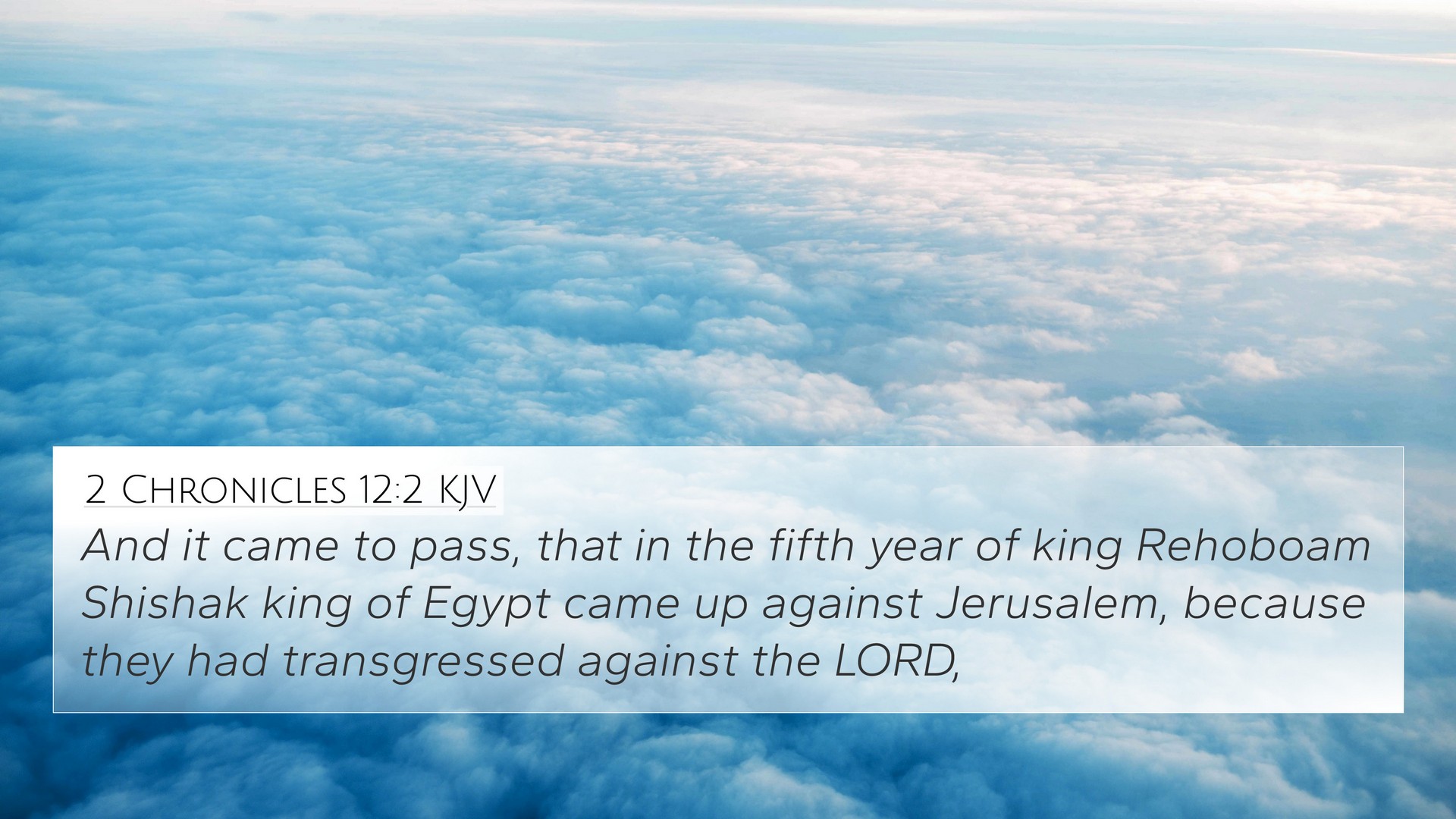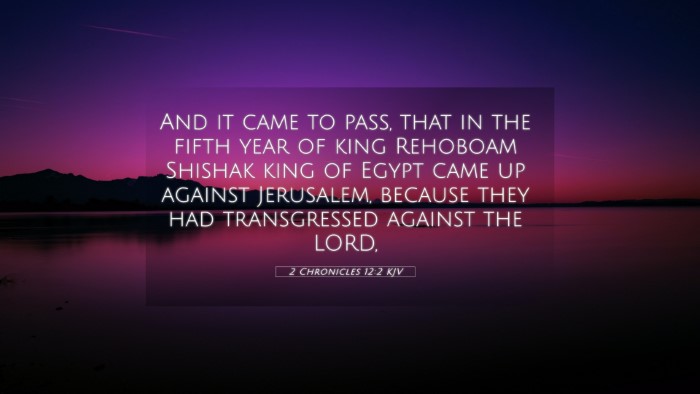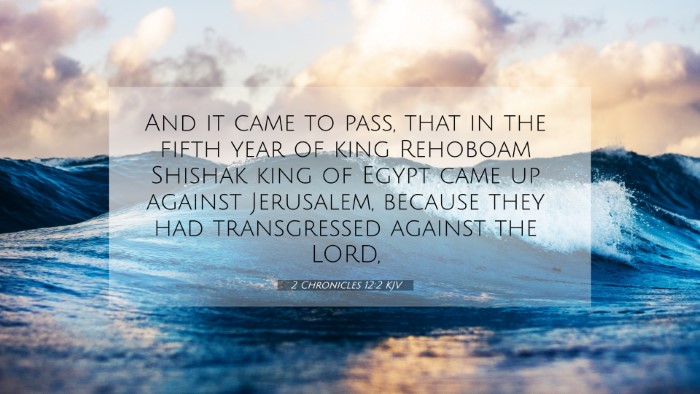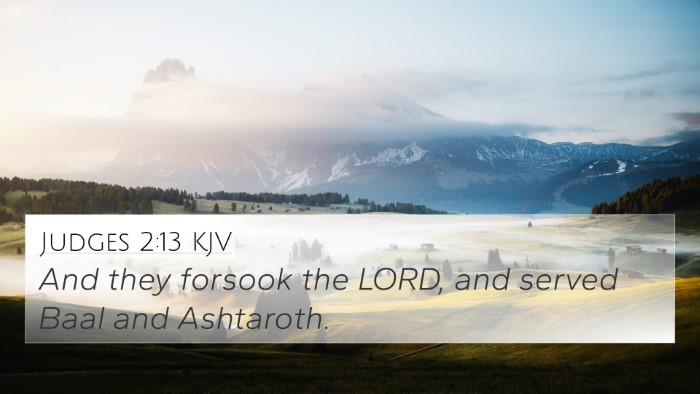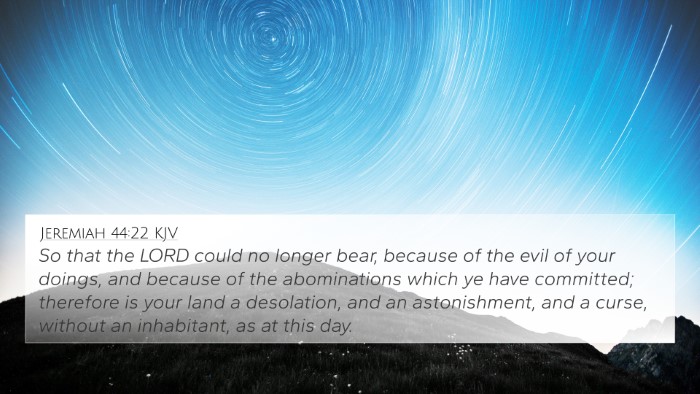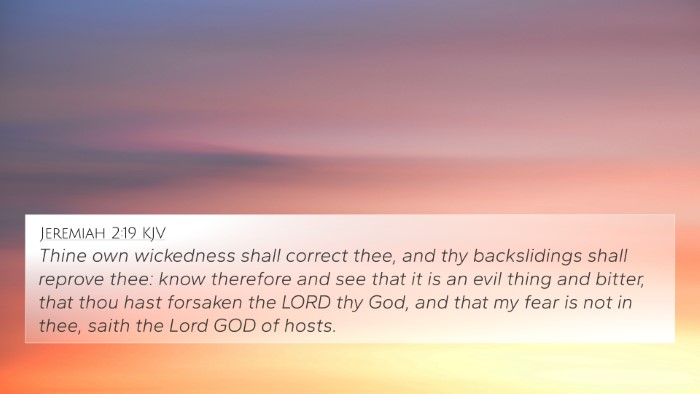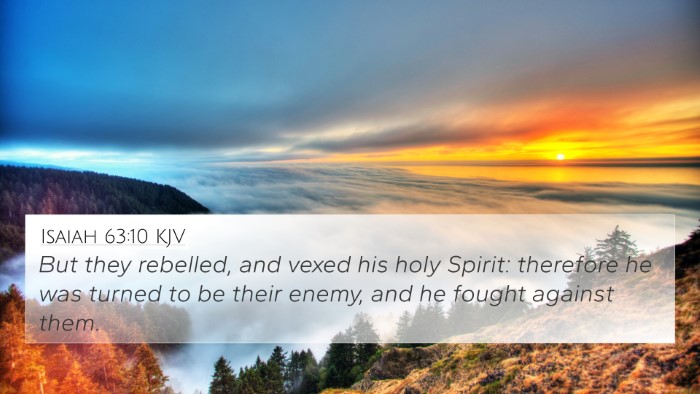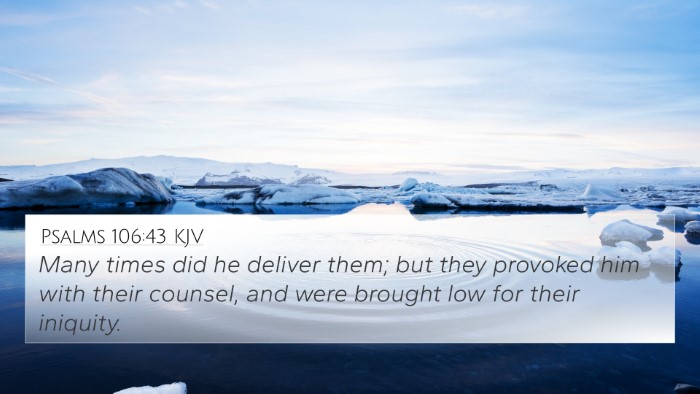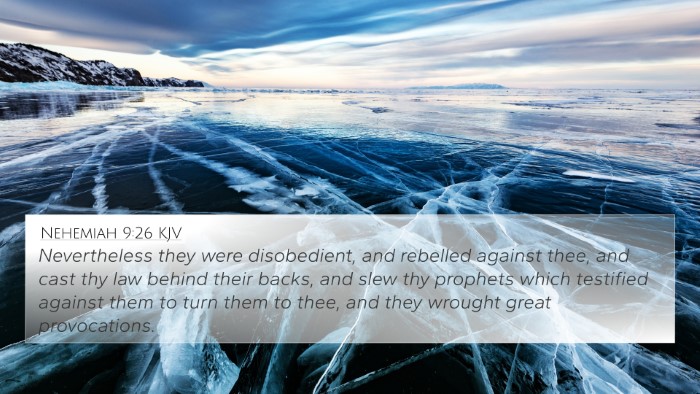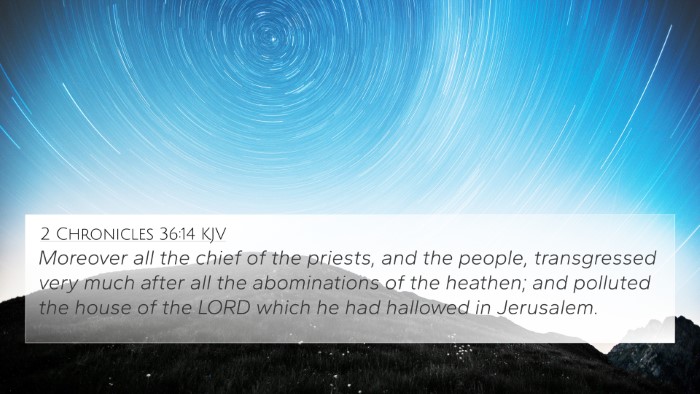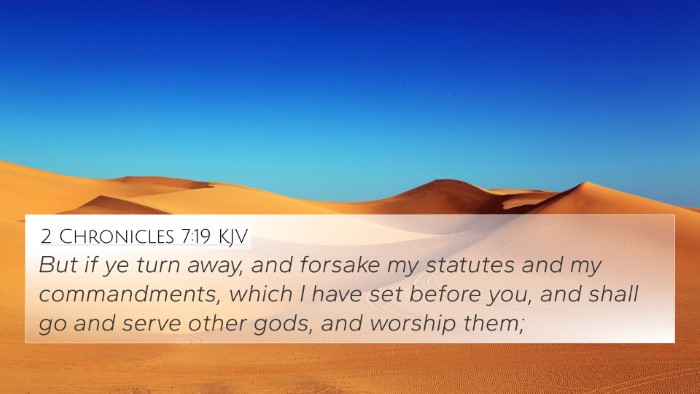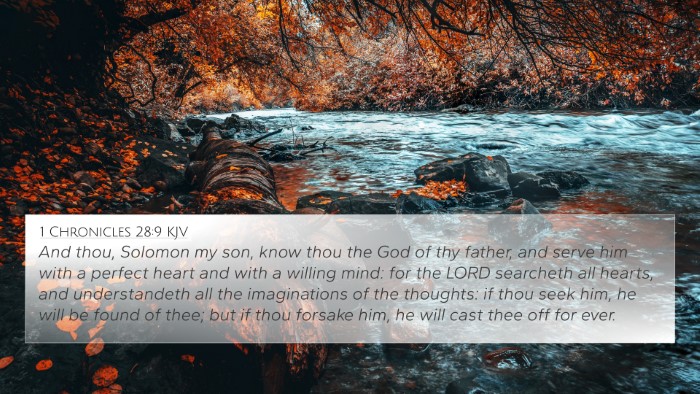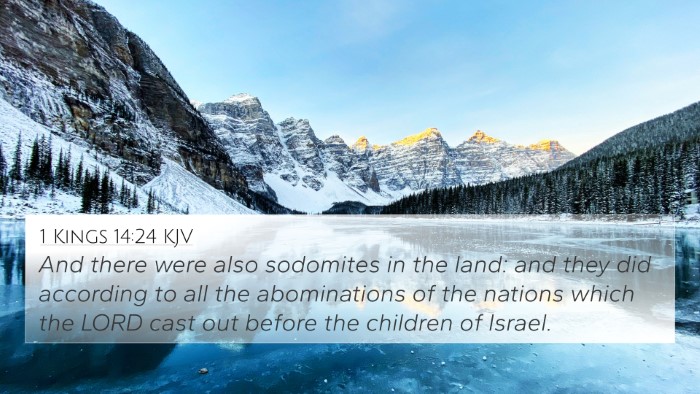Understanding 2 Chronicles 12:2
Verse Context: The verse states, "And it came to pass, that in the fifth year of King Rehoboam, Shishak king of Egypt came up against Jerusalem," indicating a pivotal point in the history of Judah during the reign of Rehoboam.
Summary of 2 Chronicles 12:2
This passage illustrates a moment of crisis for Judah as they face invasion from Egypt, demonstrating the consequences of Rehoboam's failures as a leader and the nation’s spiritual decline. It acts as a historical marker for understanding the decline of Judah's power and influence as a result of turning away from God.
Commentary Insights
The following insights combine the thoughts of renowned public domain commentators:
-
Matthew Henry:
Henry emphasizes Rehoboam's poor leadership, which sets the stage for Shishak's attack. He observes that this invasion was a judgment from God due to the people's transgressions. The unity and strength of Israel were compromised because they turned away from loyalty to God.
-
Albert Barnes:
Barnes outlines that Shishak's attack symbolizes a significant shift in geopolitical power, illustrating the overshadowing might of Egypt at this time. He notes that the event serves as a reflection of God's displeasure with Israel due to disobedience and idolatry, offering a moment of reflection on the consequences of straying from God’s commandments.
-
Adam Clarke:
Clarke delves into the historical and cultural context, explaining that Shishak's invasion was not only a military threat but also a spiritual one, signaling a downturn in Israel’s fidelity to God. He highlights the necessity of repentance and returning to divine favor as essential for restoration and victory.
Cross-References for 2 Chronicles 12:2
The following cross-references provide additional layers of meaning and context, linking 2 Chronicles 12:2 with other significant Bible verses:
- 1 Kings 14:25-26: Illustrating Shishak’s initial invasion, this passage provides background on the loss of treasures, reinforcing the narrative of judgment.
- 2 Chronicles 10:1-19: This section explains Rehoboam's rise to power and the factors that contributed to his poor decision-making.
- 2 Chronicles 7:19-22: The Lord's warnings about disobedience resonate deeply with the context of Shishak's attack.
- Isaiah 30:1-7: This passage reflects on the futility of seeking alliances with Egypt, highlighting the recurring theme of disobedience leading to disaster.
- Jeremiah 2:18: A reminder of Israel's past with Egypt and their propensity to stray from God, creating parallels in the nation’s history.
- 2 Kings 14:25: Discusses the historical backdrop, connecting the events of Rehoboam's time to broader Israelite history.
- Hosea 7:11: This verse draws upon imagery of Israel's foolishness in seeking help from nations instead of turning to the Lord.
- Hebrews 12:6: Elaborates on the theme of discipline from God, correlating the suffering of Judah with God’s corrective actions.
- Proverbs 16:18: Warns about pride, relating it to Judah’s downfall due to hubris in leadership.
- Amos 5:4: An admonition to seek God, underscoring the need for spiritual alignment to avert disaster.
Thematic Connections
2 Chronicles 12:2 can be connected with various themes throughout the Bible, such as:
-
Divine Judgment: The attack by Shishak serves as a clear reminder of the consequences that follow when a nation or individual forsakes divine commandments.
-
Leadership Accountability: Rehoboam's choices illustrate the impact of leadership and governance on the spiritual state of a nation.
-
Spiritual Decline: The passage signifies a critical point of decline, paralleling other moments of spiritual disobedience in the history of Israel.
Practical Applications
Understanding the implications of 2 Chronicles 12:2 can lead to several practical reflections:
- Importance of Spiritual Fidelity: This verse encourages believers to reflect on their own faithfulness to God and the potential consequences of spiritual neglect.
- Leadership Influence: It highlights the importance of wise leadership in both spiritual and secular realms, serving as a guide for contemporary leaders.
- The Call to Repentance: The need for collective repentance in communities mirrors the call made in many prophetic texts.
Conclusion
2 Chronicles 12:2 serves as a profound reminder of the intersections between human actions and divine responses. By utilizing tools for Bible cross-referencing, scholars and believers can uncover rich insights through comparative Bible verse analysis, enhancing their understanding of scripture.
Resources for Further Study
Readers interested in exploring more about cross-referencing Biblical texts may find the following resources helpful:
- Bible concordance for finding specific terms and themes.
- Bible cross-reference guide to aid in studying interconnected scriptures.
- Cross-reference Bible study tools to delve deeper into thematic connections across the Bible.
